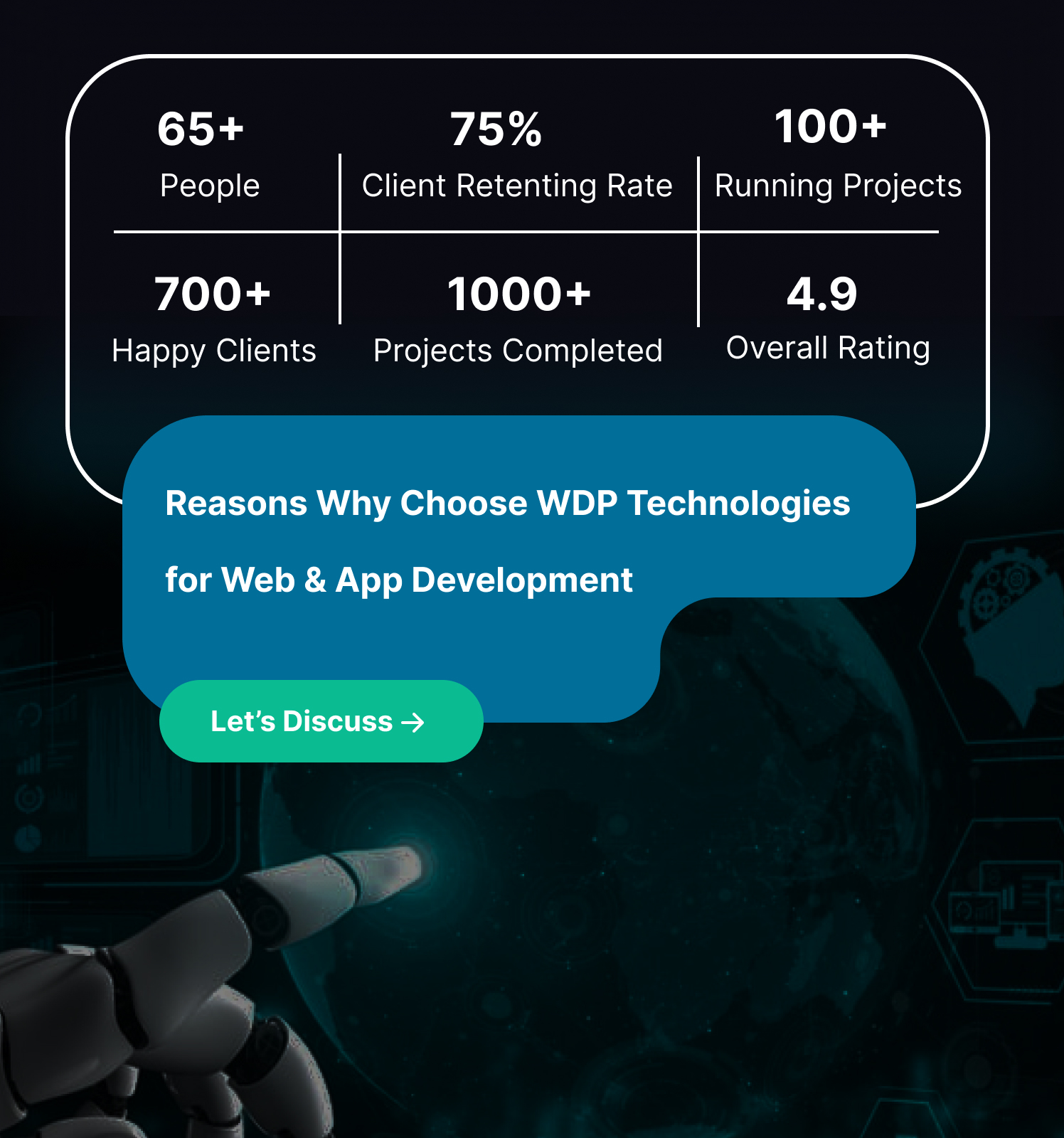Offshore development teams refer to a group of professionals located in a different country or region who collaborate remotely to work on software development projects for organizations. These teams are typically employed to leverage the skills and expertise available in different parts of the world and to capitalize on cost advantages and round-the-clock productivity.
Outsourcing your development to an offshore team can be a great way to save money and get access to a wider pool of talent. However, it’s important to manage offshore development team effectively in order to get the results you want.
How To Manage Offshore Development Team Effectively
Effective management is crucial for achieving successful outcomes when working with offshore development teams. It involves implementing strategies and practices that promote clear communication, efficient collaboration, and productive teamwork. Let’s delve into key strategies and best practices to manage offshore development team effectively.
1) Establish clear goals and expectations
To effectively manage offshore development team, it is essential to establish clear project goals, objectives, and expectations. This involves defining the scope of work, desired outcomes, and specific milestones. Clearly communicating these aspects to the team ensures everyone is aligned and working towards the same objectives. Additionally, provide the team with a comprehensive understanding of the project’s context, purpose, and potential challenges to set realistic expectations.
2) Identify right talent for your offshore team
While hiring offshore development company, it is crucial to identify and recruit the right talent. Clearly define the required skills, experience, and qualifications for each role. Leverage recruitment channels and platforms that cater to the specific talent pool you are targeting. Conduct thorough interviews and assessments to evaluate candidates’ technical abilities, communication skills, and cultural fit. Look for individuals who demonstrate adaptability, collaboration, and a willingness to work in a remote setup.
3) Establish effective communication channels and tools
Successful management of offshore teams relies heavily on efficient communication. Identify and establish effective communication channels and tools that facilitate seamless interactions. This can include video conferencing platforms(google Meet), instant messaging applications(skype). Ensure that all team members have access to these tools and are proficient in their use. Regularly communicate with the team and encourage open and transparent communication to foster effective collaboration.
4) Define clear roles and responsibilities for each team member
To ensure smooth collaboration and accountability within the offshore team, clearly define roles and responsibilities for each team member. Outline their specific tasks, areas of expertise, and reporting structures. Establishing a clear organizational structure helps prevent confusion and overlapping responsibilities. Clearly communicate expectations and ensure that everyone understands their roles within the team.
5) Overcoming language and cultural barriers:
While manage offshore development team, it is essential to address language and cultural differences. Encourage open dialogue and provide language support when necessary to ensure effective communication. Foster a culture of respect and understanding for diverse perspectives and backgrounds. Take the time to learn about cultural norms and customs of team members, which can enhance collaboration and mitigate misunderstandings. Emphasize the importance of clear and concise communication to bridge any language or cultural gaps.
6) Define project management methodologies and workflows
Establishing clear project management methodologies and workflows is crucial to manage offshore development teams effectively. Define the approach, frameworks, and processes that will be followed throughout the project lifecycle. Determine the stages, deliverables, and dependencies involved. Document these methodologies and workflows to provide a reference for the team. Communicate and train the team members on the defined processes to ensure everyone is aligned and understands their roles and responsibilities.
7) Set up efficient task allocation and tracking systems
Efficient task allocation and tracking systems are essential for managing work within offshore teams. Implement a system for assigning tasks, deadlines, and priorities to team members. Utilize project management tools (jira) that allow for easy task assignment and tracking. Clearly communicate task expectations, deliverables, and dependencies. Regularly monitor progress and provide necessary support or adjustments. Having a streamlined task allocation and tracking process helps ensure accountability, transparency, and timely completion of work.
8) Implement effective project documentation and knowledge sharing practices
Project documentation and knowledge sharing practices play a crucial role in managing offshore development teams. Create a repository or knowledge base where project documentation, specifications, guidelines, and best practices are stored and easily accessible to the team. Encourage team members to contribute to documentation and share their insights and experiences. Implement processes for version control and review to maintain the accuracy and relevance of the documentation. By fostering effective project documentation and knowledge sharing practices, you enable efficient collaboration and facilitate continuous learning and improvement.
9) Monitor and manage progress using key performance indicators (KPIs):
Monitoring progress using key performance indicators (KPIs) is vital to track the success of offshore development projects. Identify relevant KPIs aligned with project goals and objectives. These could include metrics such as task completion rate, adherence to timelines, quality of deliverables, and customer satisfaction. Regularly track and analyze these KPIs to assess project progress and identify areas for improvement. Use the insights gained to make informed decisions, provide feedback to the team, and implement necessary adjustments to keep the project on track.
10) Team Collaboration and Engagement
Team collaboration and engagement are vital for the success of offshore development teams. By promoting a collaborative work environment, encouraging teamwork and cross-functional collaboration, fostering a sense of camaraderie and team spirit, and recognizing and appreciating the contributions of team members, you can create a dynamic and engaged team. Building a collaborative work environment enhances communication and idea sharing, leading to innovative solutions. Encouraging teamwork and cross-functional collaboration leverages diverse skills and expertise, maximizing the team’s potential. Fostering camaraderie and team spirit fosters a sense of belonging and motivation, while recognizing and appreciating contributions boosts morale and encourages continued excellence. These efforts create a positive and productive team culture, driving the success of offshore development projects.
11) Managing Time Zone Differences
Managing time zone differences is a critical aspect of effectively manage offshore development team. To navigate this challenge, it is important to establish clear and effective communication strategies. First, identify overlapping working hours to ensure real-time collaboration and availability for important discussions or meetings. Establish shared calendars or schedules to keep track of team members’ availability. Leverage asynchronous communication methods, such as email or project management tools, to bridge the gap between different time zones. This allows team members to share updates, provide feedback, and collaborate on tasks, even when they are not working simultaneously. Encourage flexibility and understanding among team members to accommodate different time zones and promote a balanced work-life integration. By effectively managing time zone differences, the offshore development team can maintain effective communication, collaboration, and productivity despite geographic distances.
12) Building Trust and Accountability
Building trust and accountability within an offshore development team is crucial for effective collaboration and project success. Trust is established by demonstrating reliability, integrity, and transparency in all interactions. Encourage open and honest communication, where team members feel comfortable expressing their thoughts and concerns. Foster a culture of accountability by setting clear expectations, assigning ownership to tasks, and ensuring timely delivery of commitments. Encourage team members to take ownership of their work and hold each other accountable for their responsibilities. By building trust and accountability, the team members can rely on one another, collaborate effectively, and deliver high-quality results, even in a remote setting.
13) Managing Risks and Mitigating Challenges
Managing risks and mitigating challenges is essential when overseeing offshore development teams. It involves conducting a comprehensive risk assessment to identify potential issues such as communication barriers, cultural differences, or time zone challenges. By establishing clear processes, effective communication channels, and contingency plans, you can proactively address and mitigate these risks. Regular monitoring, feedback loops, and adaptability allow for timely adjustments and course corrections. Implementing strong project management practices, fostering a culture of collaboration, and maintaining open lines of communication help minimize risks and ensure the successful execution of offshore development projects.
14) Provide regular feedback and support
It is crucial to provide regular feedback and support to manage an offshore development team effectively . Regular feedback sessions allow for constructive discussions about performance, highlighting achievements, and identifying areas for improvement. Timely support should be provided to address challenges and provide resources or guidance. Encouraging knowledge sharing within the team fosters collaboration and the exchange of expertise. By consistently offering feedback and support, managers can enhance team performance, maintain accountability, and ensure the success of offshore development projects.
Read More : Why, When, and When Not to Hire Offshore Developers
Benefits of Offshore Development Team
Overall, offshore development teams offer significant benefits, including cost savings, access to global talent, increased productivity and scalability, time zone advantages, the ability to focus on core competencies, increased innovation, and faster time to market. Leveraging these advantages can contribute to improved business outcomes and success in today’s competitive landscape.
- Cost savings: One of the primary advantages of offshore development teams is cost savings. Companies can access a talent pool in regions with lower labor costs, resulting in reduced expenses for salaries and overhead compared to hiring in-house teams or local contractors.
- Access to global talent: Offshore development allows businesses to tap into a diverse and global talent pool. It enables access to skilled professionals from different parts of the world, providing a wider range of expertise and specialized skills that may be scarce or expensive locally.
- Increased productivity and scalability: Offshore development teams offer the flexibility to scale resources up or down quickly based on project needs. Businesses can leverage the expertise and scalability of these teams to accelerate development cycles and meet deadlines efficiently.
- Time zone advantage: Working with offshore teams in different time zones allows for round-the-clock productivity. This advantage enables projects to progress even when the in-house team is not actively working, leading to faster turnaround times and increased productivity.
- Focus on core competencies: By delegating non-core tasks to offshore teams, businesses can focus on their core competencies and strategic initiatives. This allows for improved efficiency and resource allocation within the organization.
- Increased innovation and diverse perspectives: Offshore development teams bring diverse perspectives, experiences, and cultural backgrounds to the table. This diversity often fosters innovation and creative problem-solving, leading to fresh ideas and improved decision-making.
- Faster time to market: With offshore development teams, businesses can accelerate their time to market by leveraging round-the-clock development cycles, enhanced productivity, and access to specialized expertise. This advantage enables businesses to seize market opportunities quickly and gain a competitive edge.
Challenges of Offshore Development Team
While offshore development teams offer numerous benefits, company have to face certain challenges while manage offshore development team.With proper planning, clear communication, and a collaborative approach, many of these challenges can be overcome, leading to successful outcomes with offshore development teams. Some common challenges include:
- Communication barriers: Offshore teams often operate in different time zones, leading to challenges in synchronous communication and collaboration. Language barriers, cultural differences, and varying communication styles can further hinder effective communication and understanding.
- Coordination and project management: Managing a geographically dispersed team requires effective coordination and project management. Ensuring alignment, coordinating tasks, and tracking progress across different locations and time zones can be challenging, requiring robust project management practices and tools.
- Quality control and consistency: Maintaining consistent quality standards and ensuring adherence to project requirements can be challenging when working with offshore teams. Differences in work cultures, processes, and standards may impact the quality of deliverables, necessitating strong quality control mechanisms and clear communication of expectations.
- Data security and intellectual property protection: Offshore development involves sharing sensitive information and intellectual property with external teams. Ensuring data security, protecting intellectual property rights, and maintaining confidentiality can be challenging, requiring robust security measures and legal safeguards.
- Team dynamics and cultural differences: Managing diverse teams with members from different cultures and backgrounds can pose challenges in terms of team dynamics, collaboration, and decision-making. Cultural differences in work styles, communication norms, and problem-solving approaches may require additional effort to foster understanding and effective teamwork.
- Managing expectations and building trust: Establishing trust and managing expectations can be challenging when working with offshore teams. Ensuring clear communication, setting realistic project timelines and deliverables, and building strong relationships based on trust are crucial for successful collaboration.
- Overcoming distance and time zone constraints: Physical distance and time zone differences can pose challenges in terms of coordination, availability for meetings, and real-time collaboration. Balancing work schedules and managing overlapping working hours is essential to facilitate effective communication and collaboration.
In conclusion
Effectively manage offshore development team is crucial for businesses looking to leverage the benefits of global talent, cost savings, and increased productivity. While there are challenges associated with offshore teams, such as communication barriers, coordination difficulties, and cultural differences, these challenges can be mitigated through proactive management, clear communication strategies, and strong project management practices.
By fostering a positive team culture, establishing clear processes, utilizing effective communication tools, and promoting collaboration and engagement, businesses can overcome these challenges and achieve successful outcomes. Additionally, by recognizing the importance of hiring and onboarding, managing time zone differences, and addressing risks, businesses can maximize the advantages of offshore development teams.
With proper management and a focus on building trust, accountability, and a strong team culture, businesses can harness the potential of offshore development teams and drive innovation, efficiency, and success in a global marketplace.













